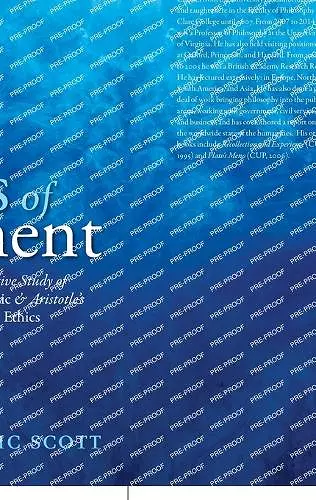Levels of Argument
A Comparative Study of Plato's Republic and Aristotle's Nicomachean Ethics
Format:Hardback
Publisher:Oxford University Press
Published:5th Mar '15
Currently unavailable, and unfortunately no date known when it will be back
This hardback is available in another edition too:
- Paperback£28.49(9780198801610)

In Levels of Argument, Dominic Scott compares the Republic and Nicomachean Ethics from a methodological perspective. In the first half he argues that the Republic distinguishes between two levels of argument in the defence of justice, the 'longer' and 'shorter' routes. The longer is the ideal and aims at maximum precision, requiring knowledge of the Forms and a definition of the Good. The shorter route is less precise, employing hypotheses, analogies and empirical observation. This is the route that Socrates actually follows in the Republic, because it is appropriate to the level of his audience and can stand on its own feet as a plausible defence of justice. In the second half of the book, Scott turns to the Nicomachean Ethics. Scott argues that, even though Aristotle rejects a universal Form of the Good, he implicitly recognises the existence of longer and shorter routes, analogous to those distinguished in the Republic. The longer route would require a comprehensive theoretical worldview, incorporating elements from Aristotle's metaphysics, physics, psychology, and biology. But Aristotle steers his audience away from such an approach as being a distraction from the essentially practical goals of political science. Unnecessary for good decision-making, it is not even an ideal. In sum, Platonic and Aristotelian methodologies both converge and diverge. Both distinguish analogously similar levels of argument, and it is the shorter route that both philosophers actually follow--Plato because he thinks it will have to suffice, Aristotle because he thinks that there is no need to go beyond it.
Scott's analysis helps bring important questions about Aristotle's method into sharp focus; he assesses the evidence judiciously, and defends plausible positions in a way that allows the reader to make up her own mind. In terms of style, Dominic Scott is perhaps the most elegant writer working on ancient philosophy today.Levels of Argumentsets a new benchmark for scholarship. It is one of the most original and thought-provoking works of ancient philosophy to appear in recent years. Like the works it studies, it rewards reading and re-reading, and will become a standard critical work for any serious student of ancient philosophy. * Karen Margrethe Nielsen, Mind *
This book is without question a valuable contribution to our study of the Republic and Nicomachean Ethics. The carefulness and reasonableness with which Scott approaches the text inspire much confidence ... this methodologically innovative study on a well-chosen topic really does manage to let fresh air into our perennial reading of the Republic and Nicomachean Ethics. * Samuel H. Baker, Notre Dame Philosophical Reviews Online *
ISBN: 9780199249640
Dimensions: 222mm x 147mm x 21mm
Weight: 436g
244 pages